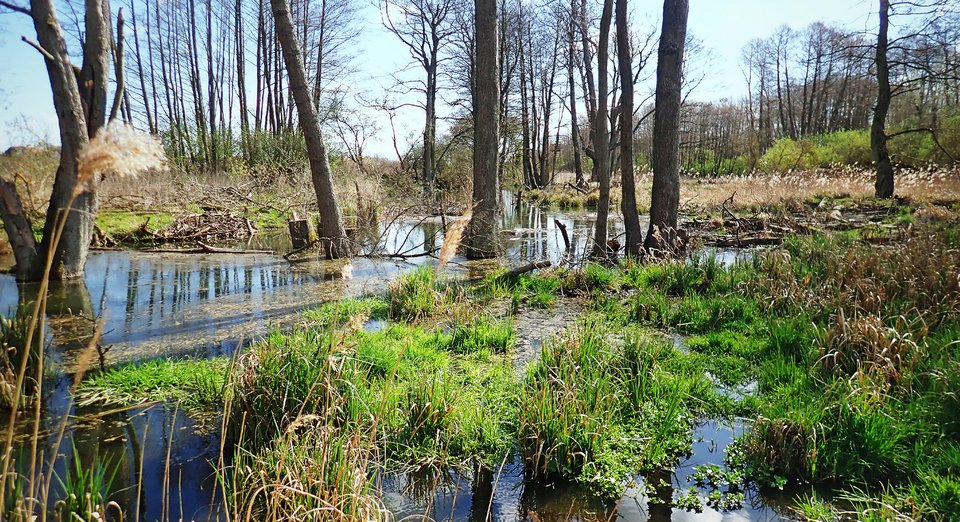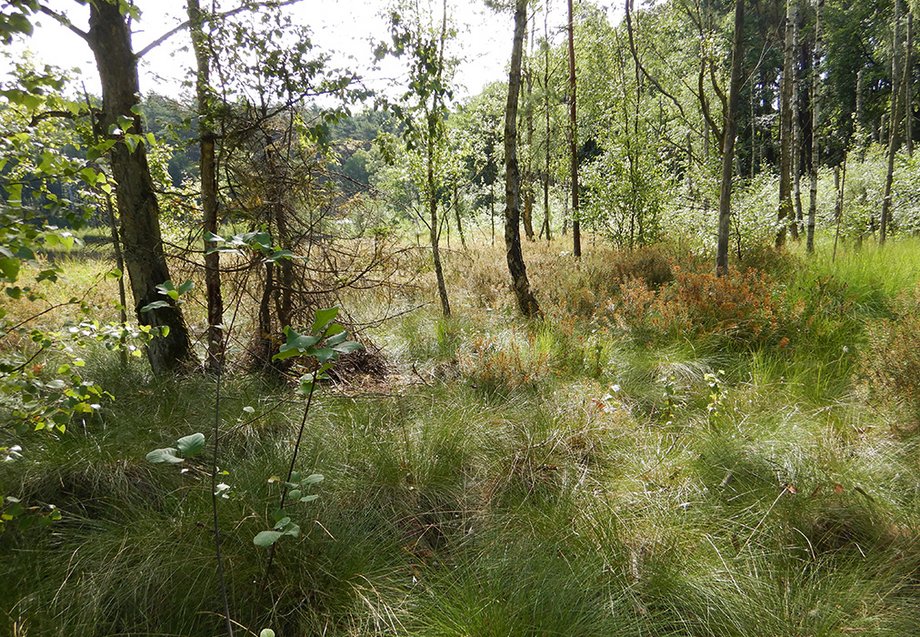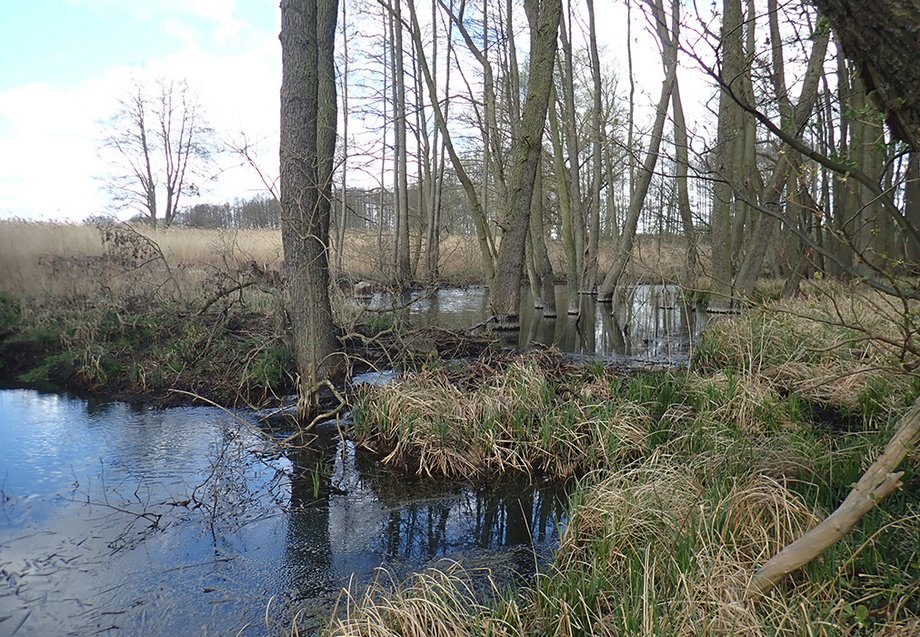
Peatlands are the most effective carbon stores on land - but only when they are wet. NABU wants to save moors as natural CO₂ reservoirs with a new climate fund. How this is to be achieved - and why long-term partner REWE is supporting it with at least 25 million euros.
Healthy moors are natural climate protection. However, moors are still being drained today - to make the land usable for agriculture or to extract peat. This is why NABU (Nature and Biodiversity Conservation Union Germany) has now launched the NABU Climate Fund. The fund promotes the rewetting of moors and agriculturally utilised moorland, thereby achieving real climate protection in Germany and the EU.
The co-initiator and main donor of the climate fund is NABU's long-standing co-operation partner REWE. NABU and the REWE Group have been working together to promote sustainability issues for more than a decade. At the REWE Group dialogue forum in Berlin on 28 April, CEO of the REWE Group Lionel Souque said: "Global warming and species extinction are the two biggest ecological crises of our time - and they have a direct impact on us all. We see ourselves as having a clear responsibility here and want to make our contribution. Together with REWE, we will therefore support the new climate fund of our long-standing partner NABU with a total of at least 25 million euros over the next five years. We are starting together with the renaturation of moors and see great potential for effective climate protection in line with the German government's Natural Climate Protection Action Programme."
The money from the NABU Climate Fund is used to support projects that have a measurably positive impact on the climate and biodiversity. At present, these areas are mainly located in Germany and in EU countries in the Baltic Sea region. "Thanks to REWE's major investment, the NABU Climate Fund enables us to make significant targeted investments in natural climate protection. REWE and NABU are assuming joint responsibility here and making a major contribution to nature conservation and climate protection," said NABU President Jörg-Andreas Krüger on the occasion of the REWE Group dialogue forum.
How the rewetting of moors works
 © NABU/Nicola Spundflasch
Most peatlands in Germany are currently used for agriculture or forestry. Raising the water levels in these areas again is therefore also associated with a change in the ability to cultivate or the form of cultivation. NABU would like to compensate for this disruption to established production processes by paying a premium to the affected farmers and foresters depending on the amount of CO2 emission reductions from a specific area. This means that the higher the water level is raised, the more CO2 remains bound in the soil and the more land managers benefit from the NABU Climate+ premium. Applications can be submitted all year round.
© NABU/Nicola Spundflasch
Most peatlands in Germany are currently used for agriculture or forestry. Raising the water levels in these areas again is therefore also associated with a change in the ability to cultivate or the form of cultivation. NABU would like to compensate for this disruption to established production processes by paying a premium to the affected farmers and foresters depending on the amount of CO2 emission reductions from a specific area. This means that the higher the water level is raised, the more CO2 remains bound in the soil and the more land managers benefit from the NABU Climate+ premium. Applications can be submitted all year round.
The benefits of rewetting for the climate and environment
 © NABU/Nicola Spundflasch
By draining the moors, the huge amounts of carbon that have been locked up for thousands of years are released into the atmosphere within a very short space of time. If these areas are now rewetted, the peatland regains its original function as a carbon store and the release of climate-damaging gases can be stopped.
© NABU/Nicola Spundflasch
By draining the moors, the huge amounts of carbon that have been locked up for thousands of years are released into the atmosphere within a very short space of time. If these areas are now rewetted, the peatland regains its original function as a carbon store and the release of climate-damaging gases can be stopped.
Although peatlands only cover three per cent of the world's land area, wet peatlands bind a quarter of terrestrial carbon - twice as much as all the world's forests combined.
However, rewetted peatlands not only offer an immediate stop to greenhouse gas emissions, but also a unique habitat for many rare animal and plant species, such as the common snipe, moor frog and sundew. Wet moors therefore also make an important contribution to the preservation of biodiversity.
